Polished Diamond Tutorial & Guide

What is the price of a diamond? What is the value of a diamond? Use our diamond price calculator to find out. Easy to use, you only need to enter the diamond’s shape, its
carat weight, its color, and its clarity.
Diamond Price

The word "diamond" comes from the Latin word adamas. Diamond is made of pure carbon that is crystallized. It is a very hard mineral, and is rated as 10 on the Mohs scale of
mineral hardness.
Definition of diamond

Diamond has an average density of 3.52 [g/cm3.] This figure can vary depending on its composition and/or the presence of inclusions. While Australian diamonds may have a
density of 3.54.
Properties of diamond
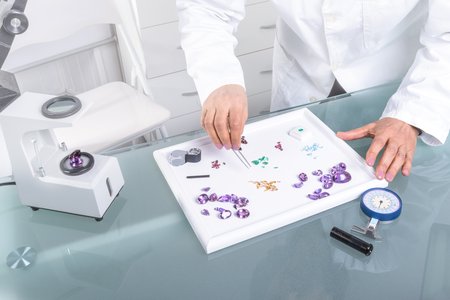
The four criteria used when evaluating diamond quality and value are known as the "4Cs". They stand for Color, Clarity, Cut, and Carat weight. The factors that
determine the value of a diamond are symbolized by these 4 criteria.
The four criteria for evaluating diamonds
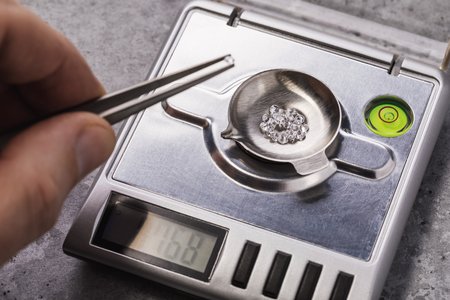
The unit of mass used to weigh diamonds is expressed in metric carats. A metric carat is equal to one fifth of a gram, that is 2 decigrams or 0.2 grams. A carat is divided
into 100 points (one point = 1/100th of a carat).
Diamond carat weight
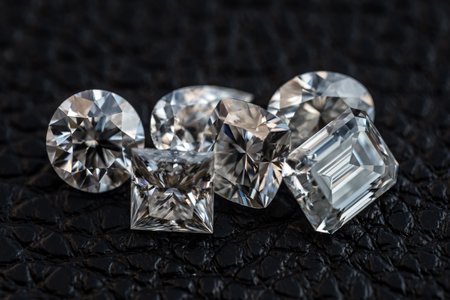
The anatomy of cut diamonds includes four main components: the table, the crown, the girdle, and the pavilion. The round brilliant cut consists of 56 facets, 57 with the table.
Cut quality and diamond shapes
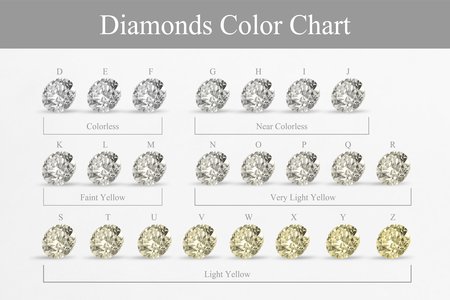
Diamond color-grading system starts from the letter D. This grade is the best possible for diamonds as it represents colorlessness. The reason why the color-grading scale begins
with the letter D is because it is the first letter of the word "diamond".
Diamond color
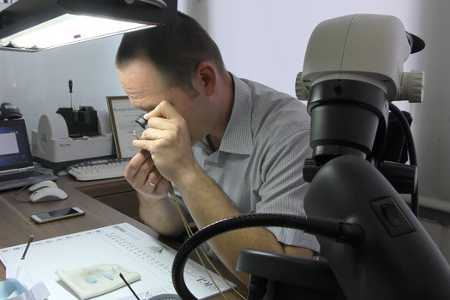
There are several diamond inclusion types: bearding, cavity inclusions, chips, cloud inclusions, etc. A diamond is labelled as "Loupe Clean" when an expert finds no defects
on a diamond despite using a x10 loupe. There is a clarity scale to classifie clarity of a diamond.
Diamond clarity
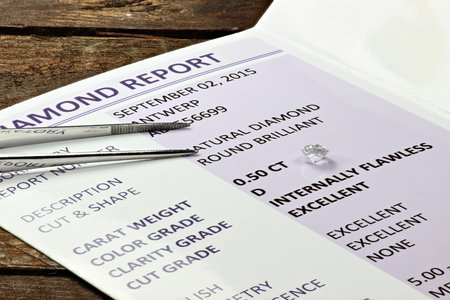
A grading report can be thought of as the diamond's identity card; it is unique. It is a plastified document that presents the characteristics of a diamond after it has
been carefully assessed. Certificates appeared in 1970, they radically changed the ways and customs of the profession.
Gemological certificate

It is important to buy a diamond in daylight, on a sunny day, and in a north-facing place. Only under these conditions can the true color of a diamond reveal itself. We certify
diamond for weight >= 0.30 carat.
How to buy loose diamond?
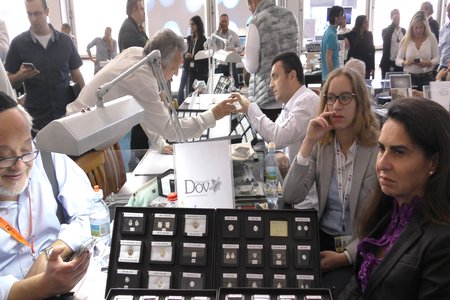
The main diamond bourses are located in Antwerp, London, NYC, Tel Aviv, and Mumbai. The most prominents diamond bourse is in Antwerp: more than half of the world’s polished
diamond supply is traded in Antwerp.
The world’s diamond bourses
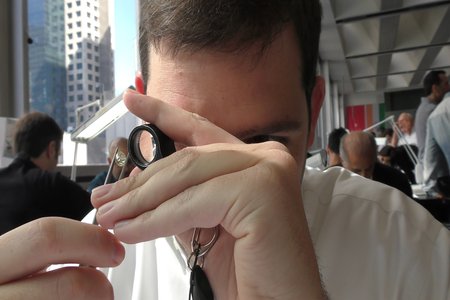
Polished diamond trade is governed by diamond bourses (there are thirty of them worldwide) and international trade fairs for the most part, but it is also influenced by fashion
and the economy.
Polished diamond trade
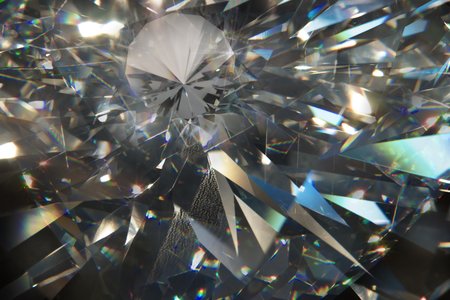
There are several methods for enhancing a diamond’s colour, such as irradiation and the use of high temperature. Diamonds that have undergone such treatments are labelled
as "color enhanced"; this needs to be specified on the diamond certification.
Diamond enhancement
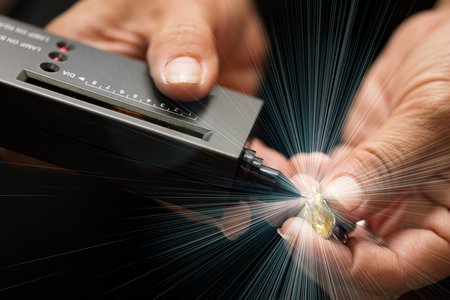
Aside from natural diamonds, there exist diamond simulants, synthetic diamonds, and assembled gems such as doublets. Moissanite is the best diamond substitute, it is not easy to detect
on jewelry. Cubic zirconia is the second best diamond substitute.
Diamond simulants
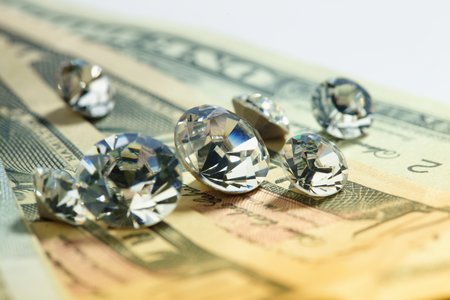
Calculating the price of a diamond
calculating the price of a diamond, calculating the value of a diamond
Martin Rapaport produced in 1978 the Rapaport Diamond Report, a price list which has since then become an international standard for establishing the price of loose diamonds.
This report is made of several price lists used by diamantaires in their work.
Determining the value of a diamond

Diamond prices are regularly updated thanks to the Rapaport Diamond Report established by Martin Rapaport. Thanks to this report, we can know how diamond prices have
changed over the past decades.
Diamond pricing
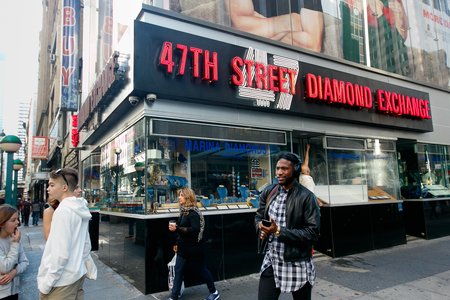
Where to buy loose diamonds? You can purchase loose diamonds from local diamantaires and gemstone dealers, in one the existing diamond bourses, or directly on the
Internet from a competent professional.
Where to buy loose diamond?
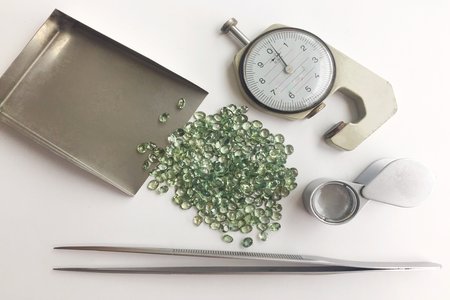
Discover in this section all the tools used by the gemstone industry and diamantaires: 10x loupes, carat scales, binocular loupes, comparison stones, diamond testers, tweezers, UV amp, etc.
Gemology tools
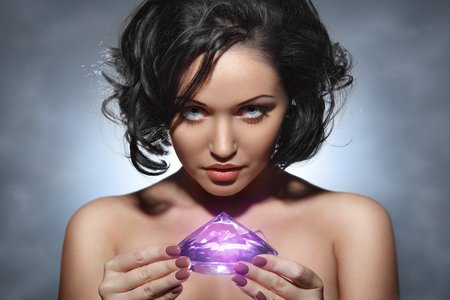
Discover the largest list of Famous Diamonds on the Internet, like the Cullinan, Golden Jubilee, Incomparable, Orlov, Great Mogul, Millennium Star, etc...
World Famous Diamonds
